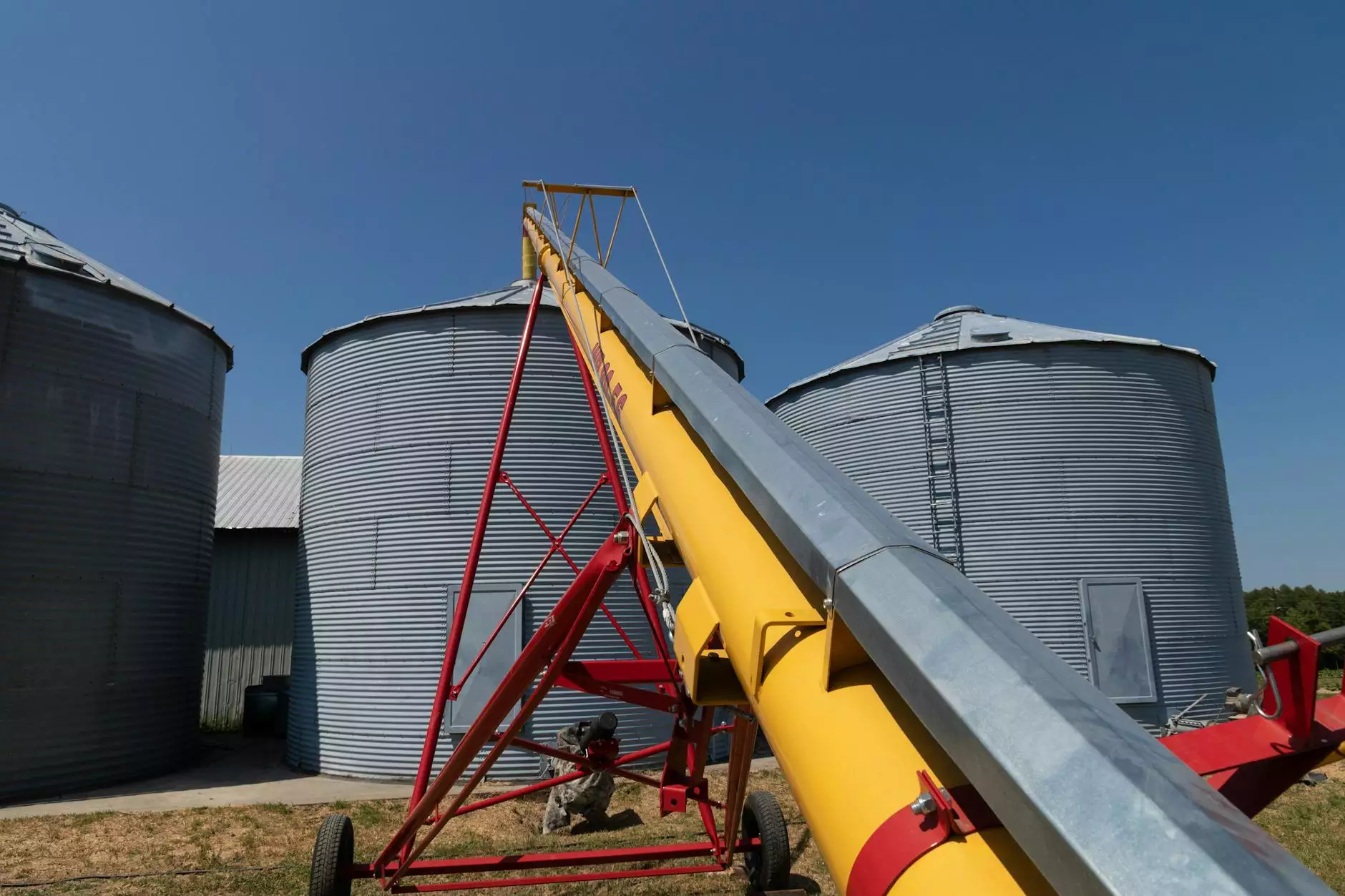The Ultimate Guide to Silo Grain Management for the Modern Farmer

Welcome to The Silo Grain Company's comprehensive guide to silo grain management for your farming business. As a leading provider of Farm Equipment Repair and quality Farming Equipment, we understand the importance of efficient grain handling and storage in agriculture. In this article, we will delve deep into the world of silo grain, covering everything from types of silos to best practices for grain management.
Understanding Silo Grain
When it comes to storing grains, silos play a crucial role in preserving the quality and freshness of the harvested crop. A silo is a structure designed to store bulk materials such as grains, silage, or fodder. The term "silo grain" specifically refers to the grains stored in these structures, including corn, wheat, barley, and more.
Types of Silos
There are several types of silos commonly used in agricultural settings:
- Steel Silos: Durable and long-lasting, steel silos are ideal for storing a variety of grains. They offer excellent protection against pests and moisture, ensuring the quality of the stored grain.
- Concrete Silos: Known for their strength and stability, concrete silos are a popular choice for long-term grain storage. They provide insulation and can be customized to suit the specific needs of the farmer.
- Bunker Silos: These silos are built into the ground and are typically used for storing silage. While not as common for grain storage, bunker silos can be a cost-effective option for smaller farms.
Benefits of Proper Silo Grain Management
Effective silo grain management is essential for ensuring the quality and value of your stored crops. By implementing best practices for grain handling and storage, farmers can experience the following benefits:
- Minimized grain spoilage and losses
- Improved grain quality and marketability
- Optimized storage capacity and space utilization
- Enhanced pest control and hygiene
- Reduced risk of contamination and mold growth
Best Practices for Silo Grain Management
Now that you understand the importance of proper silo grain management, let's explore some key best practices to help you effectively store and preserve your harvest:
1. Regular Inspection and Maintenance
Inspect your silos regularly for signs of damage, leaks, or structural weaknesses. Address any issues promptly to prevent grain spoilage and ensure the integrity of your storage structure.
2. Proper Ventilation
Proper ventilation is crucial to prevent moisture buildup and mold growth in your silos. Invest in quality ventilation systems to maintain optimal airflow and grain quality.
3. Temperature Monitoring
Monitor the temperature of your stored grain to prevent overheating and spoilage. Implement temperature monitoring systems and take corrective actions if any abnormalities are detected.
4. Pest Control
Implement effective pest control measures to protect your stored grains from infestations. Regularly inspect your silos for signs of pests and use appropriate control methods to minimize risks.
Choose The Silo Grain Company for Your Grain Management Needs
At The Silo Grain Company, we are dedicated to providing farmers with top-quality Farm Equipment Repair and innovative Farming Equipment solutions. Whether you need assistance with silo maintenance, grain handling equipment, or expert advice on silo grain management, our team is here to help.
For all your silo grain management needs, trust the experts at The Silo Grain Company. Contact us today to learn more about our services and how we can support your farming business.



